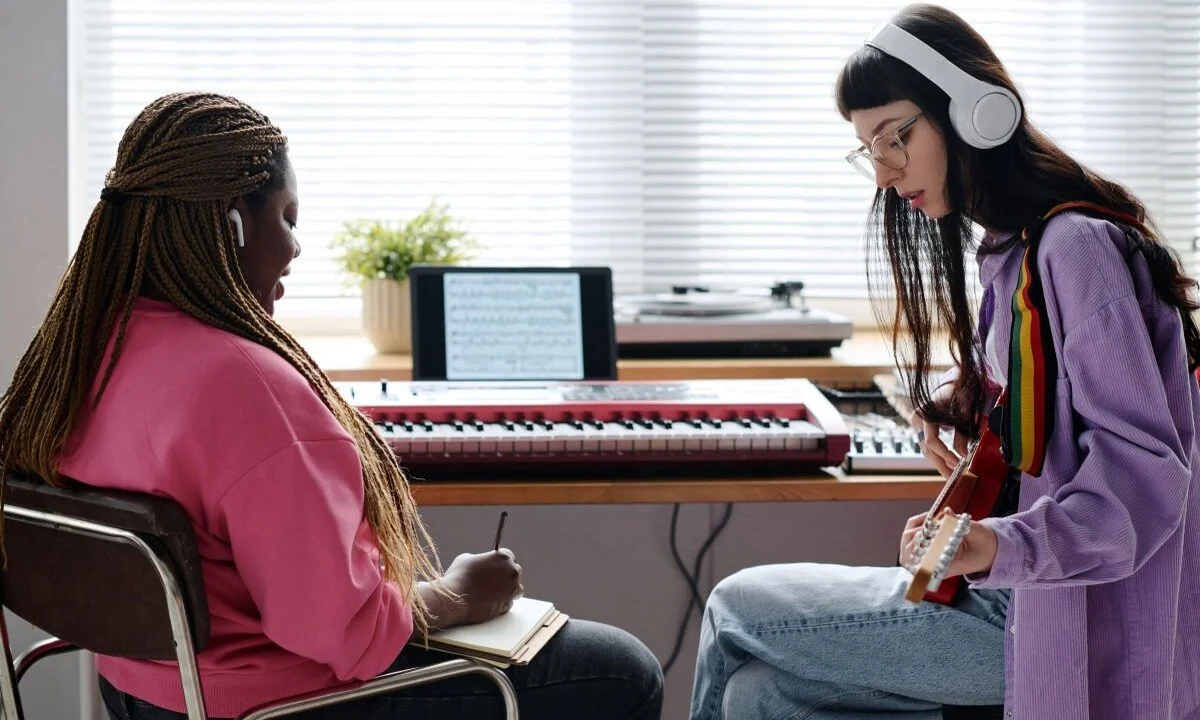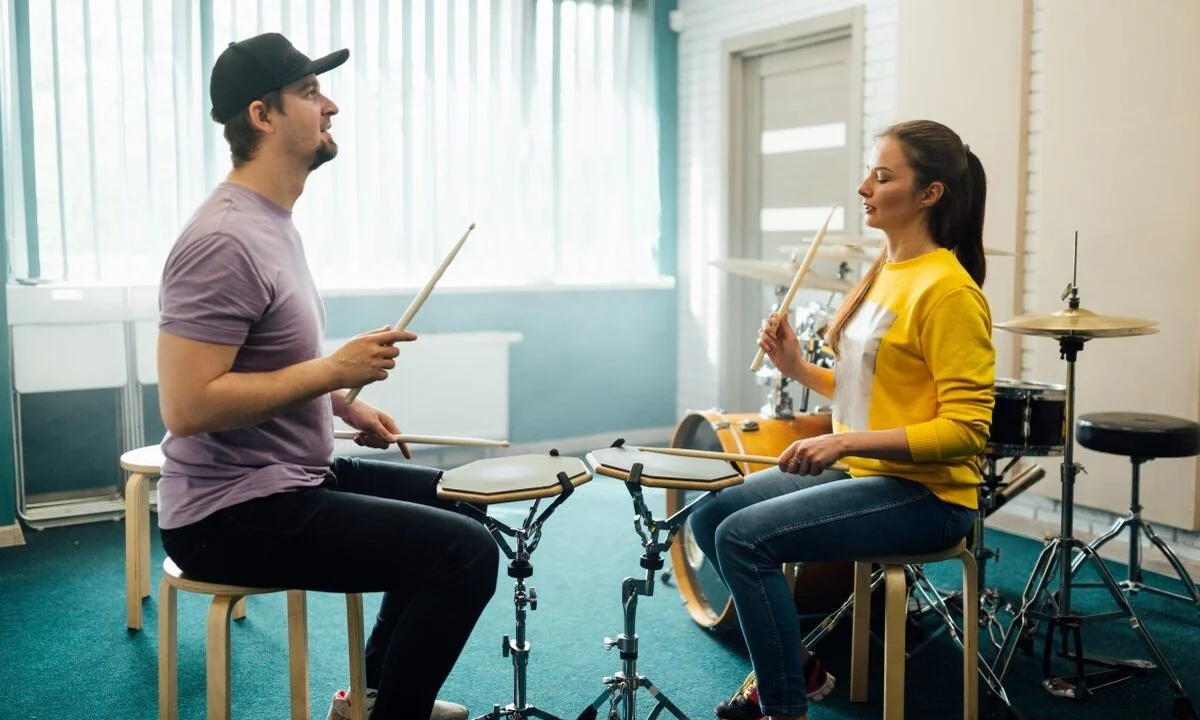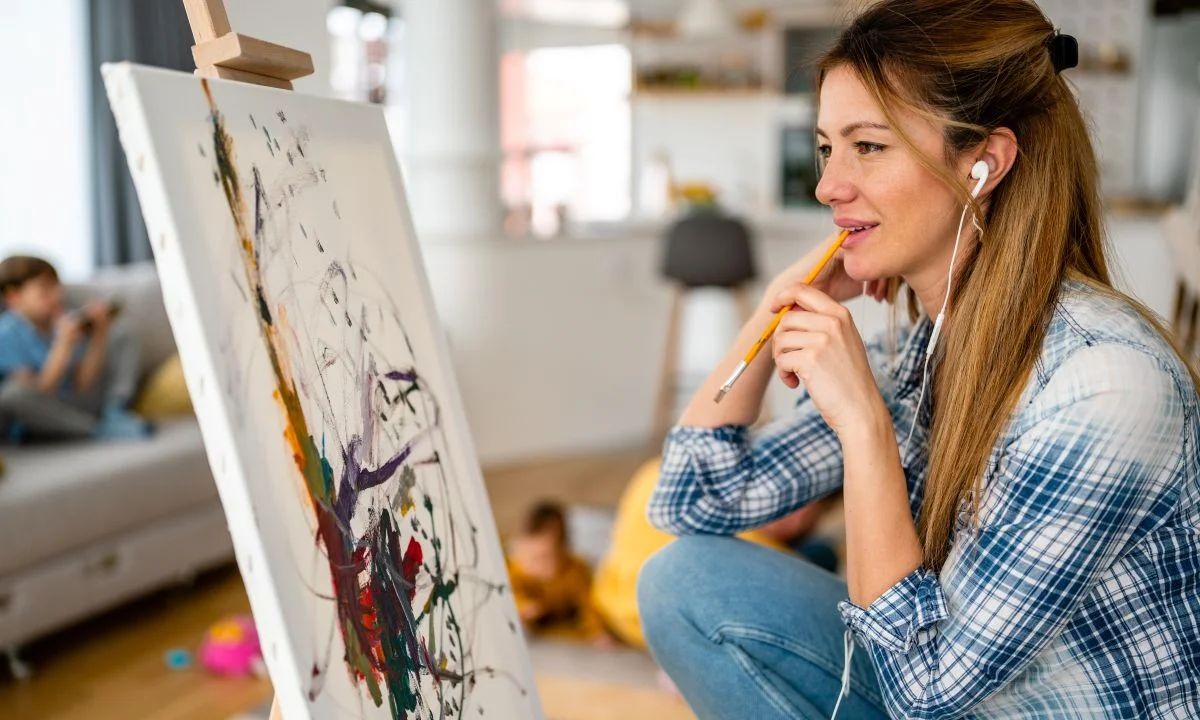Music hits us in ways that regular talking can’t match. It can evoke emotion in positive and cathartic ways. That’s why therapists have been using it for decades to help people work through mental health challenges. Expressive arts therapy takes advantage of this connection between creativity and healing.
What Is Music Therapy?
Music therapy is more than playing background songs during a therapy session. It’s a proven treatment where licensed professionals use specific music-based activities to help you reach mental health goals.
Here’s what it can help with:
- Unrelenting anxiety
- PTSD and trauma signs
- Depression that brings you down
- Trouble connecting with other people
How Does Music Affect the Brain?
When listening to music, a physiological response tends to occur, such as relaxing your muscles. This type of reaction is your brain releasing dopamine, the same feel-good chemical you get from a warm hug or achieving a goal.
Music also lowers cortisol levels. When cortisol, the stress hormone, drops, your whole system gets less tense. The rhythm and melody also stimulate your vagus nerve, which helps shift your body from a stressed state to a relaxed one.
What Kinds of Music Are Used?
Not all music does the same job in therapy. How different blues songs tackle anxiety varies. Some let you wallow, others help you climb out of negative emotional states. Classical, on the other hand, is like a mental soothing, slowing down racing thoughts. Drumming gets stuck emotions moving, the beat elevating moods.
The 4 Main Types of Music Therapy
Therapists in mental health programs use four main approaches, depending on what you need and how you like to express yourself.
1. Receptive Music Therapy
For this approach, you sit back and let carefully chosen music wash over you while your therapist guides the experience.
Benefits:
- Melts away stress and tension
- Helps you get a handle on big emotions
- Creates a safe space to process trauma
Example: Your therapist plays gentle acoustic guitar music while you close your eyes and imagine walking through a forest. The music helps you feel grounded while you work through a painful memory.
2. Improvisational Music Therapy
This immersive option can involve grabbing an instrument and playing without restraint. Also known as active music therapy, this type usually doesn’t include sheet music.
Benefits:
- Gets feelings out without needing words
- Builds confidence in your own voice
- Lets you experiment with being messy and imperfect
Example: You’re furious about something at work or in a relationship, so you grab some drumsticks and start hitting the drums. The physical release helps drain the anger from your body.
3. Songwriting and Composition
Songwriting and composition allow you to become an artist. Therapists encourage lyric writing or creating melodies that evoke your unique story and emotions.
Benefits:
- Helps you figure out what you think and feel
- Turns tough emotions into something beautiful
- Creates a lasting record of your growth
Example: You write a song about losing a best friend tragically. The process, no matter how fine-tuned, helps put words to your grief that you didn’t know how to express.
4. Lyric Analysis and Discussion
This analytical method lets you dig into song lyrics that connect with you. A therapist will help you understand why you’re drawn to them and why they matter to you.
Benefits:
- Gives you new ways to understand yourself
- Proves you’re not the only one who feels this way
- Allows for conversations that might otherwise be avoided
Example: You bring in a song that perfectly captures how your anxiety feels, like being trapped underwater while everyone else breathes easily. Talking about those lyrics helps your therapist understand your experience better.
How Music Therapy Works in Expressive Arts
Music therapy often teams up with other creative treatments for a well-rounded care program. You might paint while listening to music, or write poetry after a drumming session. This combined approach gives you more ways to process mental health conditions like trauma, depression, and anxiety.
The goal of any art therapy is to find what works for you. Typically, these creative therapies pair with other evidence-based, clinical therapies to help you heal holistically.
What Does a Music Therapy Session Look Like?
Every session looks different. You might spend 45 minutes quietly listening to carefully chosen songs, or cathartically banging on drums for half the time before unpacking your emotions for the remainder of the session.
Your therapist will read your energy and adjust accordingly so that you’re comfortable. Some days, you might need gentle background music or an analysis of a song that evoked strong feelings. Other days, a scream-sing-along session might be better suited.
Is Music Therapy Right for You?
Musical therapy works especially well if you:
- Struggle to explain how you feel
- Feel like regular therapy doesn’t work
- Love concerts, singing in the car, or playing instruments
- Want to try something different to work on your mental health
College students and trauma survivors often see major improvements with different forms of music therapy.
Music Therapy Techniques You Can Try at Home
At-home methods can be largely helpful, but shouldn’t act as a substitute for professional help. Rather, these can be self-care exercises between sessions:
- Build Emotion-Specific Playlists: One for when you’re anxious, another for when you’re sad, and so on
- Journal With Music: Write whatever comes up while listening to songs that match your mood
- Sing or Hum: Activate your vagus nerve to help you learn ways to self-regulate your emotions
- Play Various Instruments: A secondhand one can help you express things you can’t say; it’s not about perfection
Finding Healing Through Sound
Music opens up pathways to healing that regular conversation might miss. You don’t always need the perfect words to work through complex emotions or past trauma. Whether you’re humming along to the radio or working with a professional music therapist, sound can become part of your wellness routine.
Expressive arts therapy gives you a safe means to explore your inner world and find new sources of strength. Ready to try something different for your mental health? Call us today at 781-806-3008 or click here to verify insurance and start your personalized care plan.








